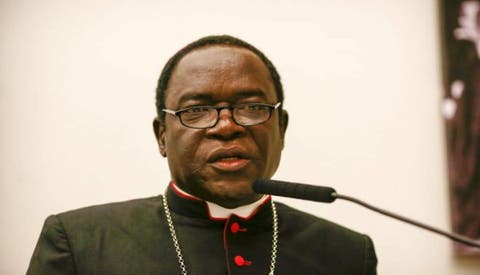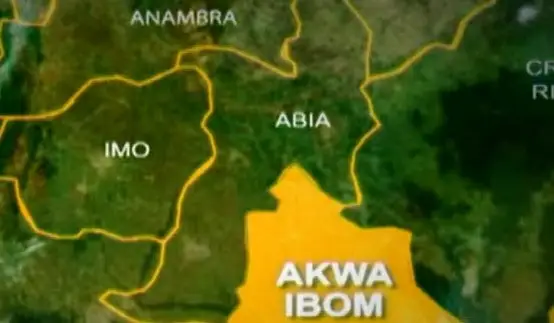The Partnership for Media and Democracy (PAMED) has called for the immediate release of Precious Eze, a journalist and publisher of the online newspaper “News Platform” who was arrested by men of the Nigerian Police Force from Zone 2 Command at his Gbagada, Lagos residence on Monday, May 27, 2024 and has since remained in police custody up till the time of issuing this press release.
PAMED in a statement described Eze’s incarceration as unconstitutional being a violation of Subsection 5 of Section 35 of the 1999 Constitution of the Federal Republic of Nigeria, which states that “(a) in the case of an arrest or detention in any place where there is a court of competent jurisdiction within a radius of forty kilometres, a period of one day; and (b) in any other case, a period of two days or such longer period as in the circumstances may be considered by the court to be reasonable.”
PAMED added that Section 61 (1) of the Nigeria Police Act 2020 agrees with the provisions of the constitution by stating that a suspect arrested without a court warrant, other than a capital offence, should be granted bail, where it is impracticable to charge to court without 24 hours.
PAMED, comprising International Press Centre (IPC), Media Rights Agenda (MRA) and the Centre for Media and Society (CEMESO), said the arrest and detention of Precious Eze adds to the unwelcome spate of intimidation of journalists and attacks on press freedom in recent times.
PAMED said it was particularly miffed that the arrest of Precious Eze was sequel to an alleged complaint by a businessman and politician, Prince Chris Odinaka Igwe, against the journalist.
“Following his arrest, Precious Eze was in detention for nearly one week before his colleagues learned of his arrest and attempted to secure his release on bail, but to no avail. He was later arraigned on Thursday, May 30, before the Ebute Meta Magistrate Court to secure a remand order by the police which resulted in a judicial rebuke of the police’s actions. The magistrate struck out the case, deeming it without merit and affirming that Eze had no case to answer. This should have led to Eze’s immediate release. Instead, he was returned to custody and rearraigned before another magistrate on Friday, May 31, with the case adjourned to a future date in June. He has been in detention for over two weeks,” his colleague Seunmanuel Faleye and General Secretary of Digital Newspapers Owners of Nigeria explained.
*Our demands*
• PAMED demands immediate freedom for Precious Eze and a halt to persistent assault on press freedom in Nigeria.
• Individuals and organisations should stop the recourse to self-help whenever they feel aggrieved about news reports. Such persons or groups are reminded that they can approach the Courts for redress or seek the intervention of media regulatory bodies like the National Media Complaints Commission (NMCC) over perceived ethical and professional breaches
• The international community, press freedom advocates, and civil society organisations should not relent in demanding for press freedom and the right of freedom of expression in Nigeria.
Recall that men of the Nigerian Police Force from the Zone 2 Command arrested Precious Eze, a journalist and publisher of the online newspaper “News Platform.”
The arrest, which took place at Eze’s Gbagada, Lagos home on Monday, May 27, was instigated by a complaint from prominent businessman and politician Prince Chris Odinaka Igwe.
This case adds to the growing case of intimidation of journalists and conversations of press freedom.
The arrest came in the wake of Eze’s publication of reports titled “GUN SHOTS IN VGC: MD & CEO Of Mainland Oil & Gas Ltd, Chris Odinaka Igwe Alleged to Have Opened Fire After Dog Encounter Turns Hostile” , https://www.newsplatformng.com/2024/05/chris-odinaka-igwe-alleged-to-have.html and “RE-VIOLENT ATTACK ON DR. CHRIS IGWE: MD, Mainland Oil & Gas Shares His Own Side of The Story on The Incident,” https://www.newsplatformng.com/2024/05/re-violent-attack-on-dr-chris-igwe-md.html
These articles, critical of Igwe, allegedly led to claims of offensive publication and threats of violence, accusations that seem aimed more at silencing a critical voice than addressing any real threat.
Following his arrest, Eze was in detention for nearly one week before his colleagues from the Society of Digital Newspaper Owners of Nigeria (SDNON) learned of his arrest and attempted to secure his release on bail, but to no avail.
Eze was arraigned on Thursday, May 30, before the Ebute Meta Magistrate Court to secure a remand order resulted in a judicial rebuke of the police’s actions. The magistrate struck out the case, deeming it without merit and affirming that Eze had no case to answer. This should have led to Eze’s immediate release. Instead, he was returned to custody and rearraigned before another magistrate on Friday, May 31, with the case adjourned to a future date in June.
This sequence of events is not just a personal ordeal for Precious Eze but a glaring assault on press freedom in Nigeria. The actions of the police, acting seemingly under the influence of a powerful individual, Prince Chris Odinaka Igwe, represent a blatant attempt to intimidate and silence the press. This undermines the very foundations of a democratic society, where journalists must be able to report freely and hold those in power accountable without fear of retribution.
The Nigerian Constitution (1999), the Evidence Act (2011), and the ethical codes of the Nigerian Press Council Act (1992) are clear in their support for journalistic freedom and the protection of sources. The prolonged detention and legal harassment of Precious Eze stand in stark contrast to these protections and serve as a chilling reminder of the vulnerabilities journalists face in Nigeria.
As this case unfolds, it is imperative for the Nigerian judiciary to uphold the principles of justice and press freedom. The international community, press freedom advocates, and civil society must also remain vigilant and vocal in their support for Eze and all journalists facing similar threats. The detention of Precious Eze is not just an isolated incident; it is a bellwether of the broader struggle for freedom of expression in Nigeria. It is a call to action to safeguard the rights of journalists and, by extension, the right of the public to be informed.







